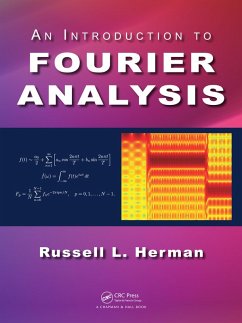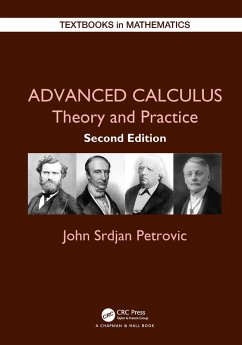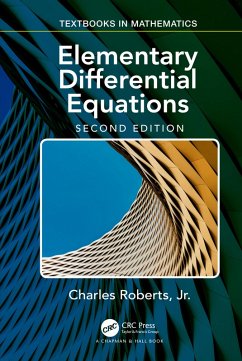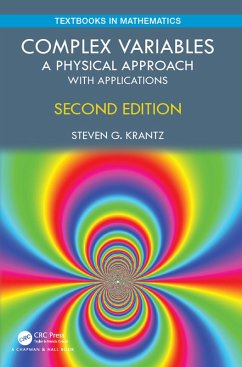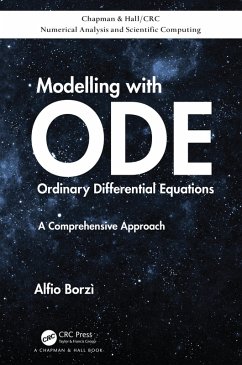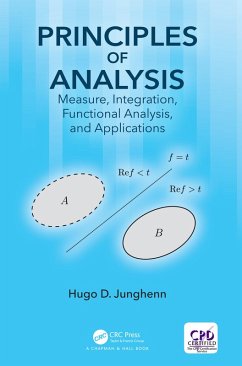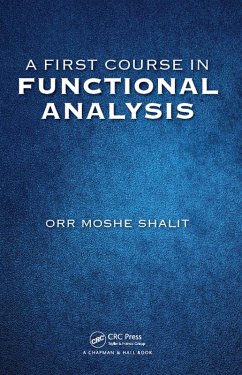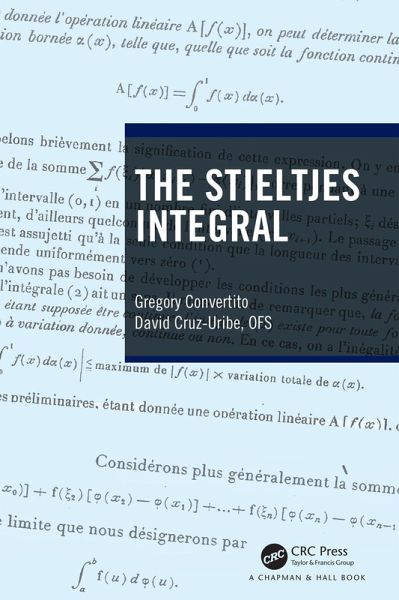
The Stieltjes Integral (eBook, ePUB)
Versandkostenfrei!
Sofort per Download lieferbar
52,95 €
inkl. MwSt.
Weitere Ausgaben:

PAYBACK Punkte
26 °P sammeln!
The Stieltjes Integral provides a detailed, rigorous treatment of the Stieltjes integral. This integral is a generalization of the Riemann and Darboux integrals of calculus and undergraduate analysis, and can serve as a bridge between classical and modern analysis. It has applications in many areas, including number theory, statistics, physics, and finance. It begins with the Darboux integral, builds the theory of functions of bounded variation, and then develops the Stieltjes integral. It culminates with a proof of the Riesz representation theorem as an application of the Stieltjes integral.F...
The Stieltjes Integral provides a detailed, rigorous treatment of the Stieltjes integral. This integral is a generalization of the Riemann and Darboux integrals of calculus and undergraduate analysis, and can serve as a bridge between classical and modern analysis. It has applications in many areas, including number theory, statistics, physics, and finance. It begins with the Darboux integral, builds the theory of functions of bounded variation, and then develops the Stieltjes integral. It culminates with a proof of the Riesz representation theorem as an application of the Stieltjes integral.
For much of the 20th century the Stjeltjes integral was a standard part of the undergraduate or beginning graduate student sequence in analysis. However, the typical mathematics curriculum has changed at many institutions, and the Stieltjes integral has become less common in undergraduate textbooks and analysis courses. This book seeks to address this by offering an accessible treatment of the subject to students who have had a one semester course in analysis. This book is suitable for a second semester course in analysis, and also for independent study or as the foundation for a senior thesis or Masters project.
Features:
For much of the 20th century the Stjeltjes integral was a standard part of the undergraduate or beginning graduate student sequence in analysis. However, the typical mathematics curriculum has changed at many institutions, and the Stieltjes integral has become less common in undergraduate textbooks and analysis courses. This book seeks to address this by offering an accessible treatment of the subject to students who have had a one semester course in analysis. This book is suitable for a second semester course in analysis, and also for independent study or as the foundation for a senior thesis or Masters project.
Features:
- Written to be rigorous without sacrificing readability.
- Accessible to undergraduate students who have taken a one-semester course on real analysis.
- Contains a large number of exercises from routine to challenging.
Dieser Download kann aus rechtlichen Gründen nur mit Rechnungsadresse in A, B, BG, CY, CZ, D, DK, EW, E, FIN, F, GR, HR, H, IRL, I, LT, L, LR, M, NL, PL, P, R, S, SLO, SK ausgeliefert werden.





